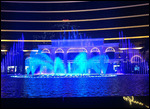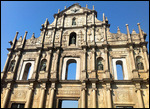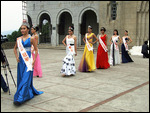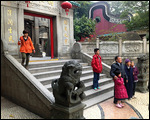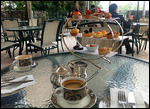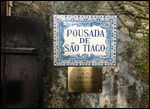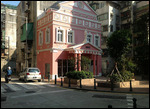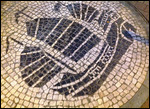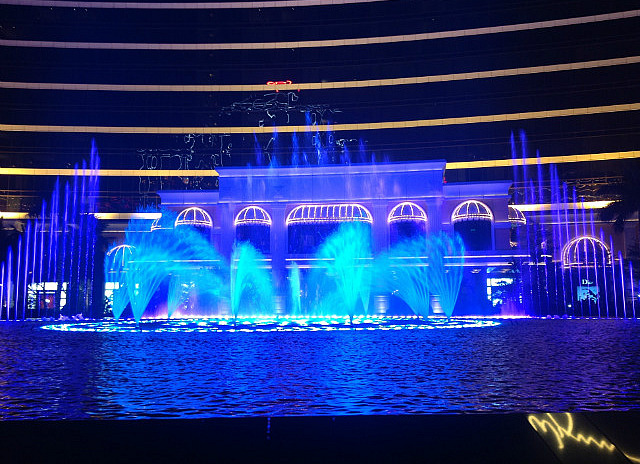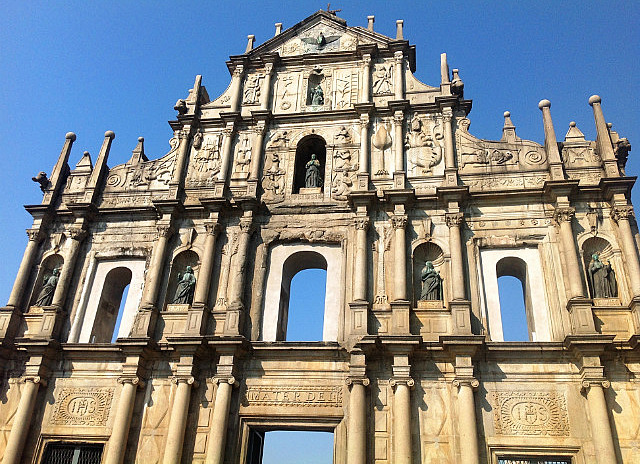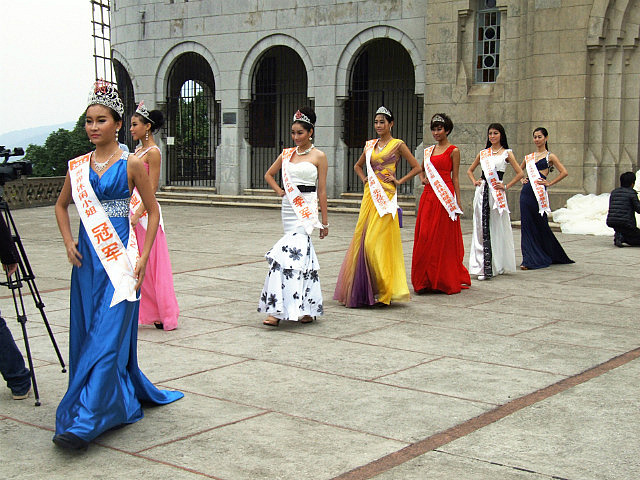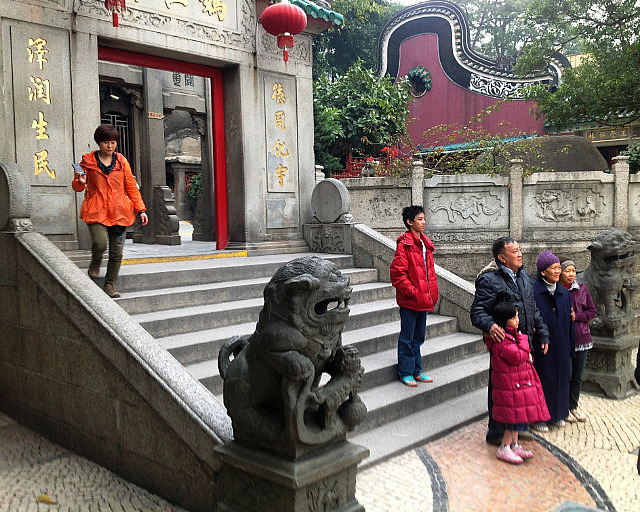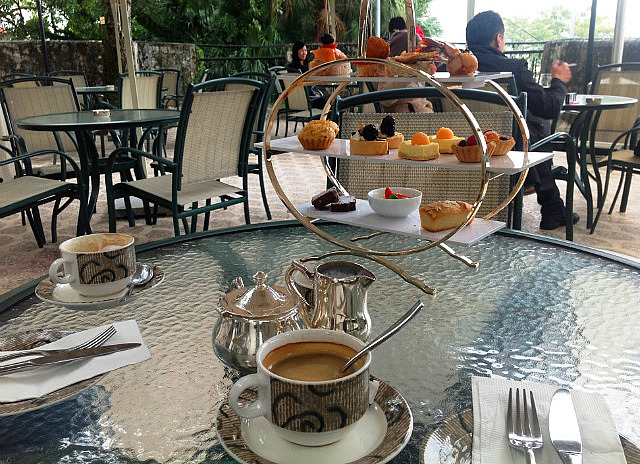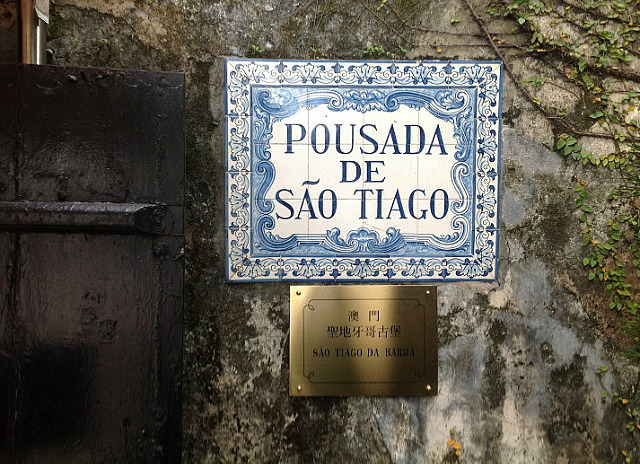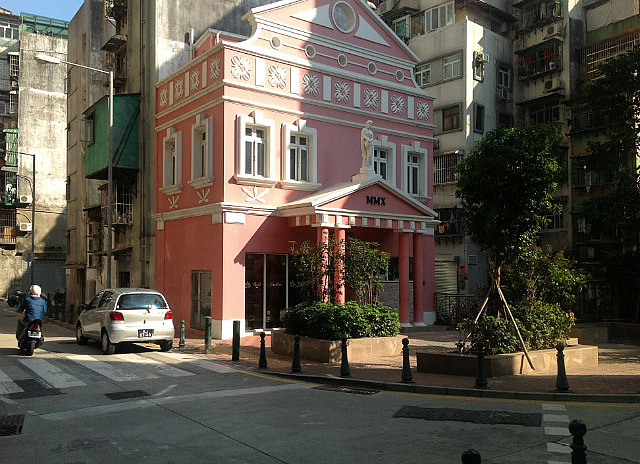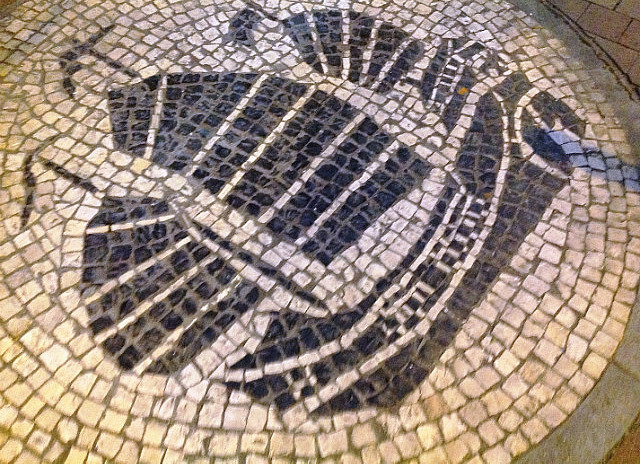Legendary yet obscure, Macau is an astonishingly small territory with a fabulous yet lonely history. It is the only Latin colonial outpost and the oldest European colony in China, established by the Portuguese in the 16th century. During its heyday from the 16th to early 19th centuries, Macau monopolized all European trade with China, Japan, and the rest of the Far East, and grew fabulously rich. Overshadowed by Hong Kong after the latter's founding by the British in the 19th century, Macau sank into obscurity so much that Portugal wanted to give it away in 1975. However, Communist China at the time didn't even want to govern such a small, poor, and crime infested territory. Today Macau is on a fabulous rebound, capitalizing on its position as the only place where casino gambling is legal anywhere near China, whose vast appetite for gambling is insatiable.
The high-speed catamaran from Hong Kong took about an hour to arrive in Macau. Upon arrival the place felt a step closer to China and away from the European feel in Hong Kong. The three long bridges crossing the sea connecting the historic Macau peninsula to the new islands were dreamy and impressive as our bus traveled across one of them to the Cotai Strip, a new landfill island.
We booked a brand new five star hotel in the Cotai Strip with a nice discount. Here a vast casino development is still being built out. Cotai Strip contains the world's largest casino - the Macau Venetian, and a slew of luxury hotels, casinos, and shopping malls. The hotel we stayed at still had interior areas under construction. The huge lobby contained an army of front desk staff although their English skills were not as good as in Hong Kong. The hotel's casino entrances were guarded by staff and had posted notices that discouraged locals from participating. Generally we did not find the Cotai Strip interesting due to it being a replica of Las Vegas.
We took a shuttle bus to the historic Macau peninsula each day we stayed. This is the old city with well-preserved Portuguese colonial architecture, the like of which can't be found elsewhere in China or in this part of Asia (closest would be Spanish colonial architecture in the Philippines). The peninsula is also where most of Macau's average people live, in densely developed low-rise neighborhoods bearing difficult-to-pronounce Portuguese street names. Portuguese is still one of the official languages in this special territory of China; in many places three languages are used in signs - Portuguese, Chinese, English (for visitors from Hong Kong in particular).
The peninsula is small enough to explore on foot, with three high hills containing much colonial history. One holds the lighthouse and a historic chapel painted in exuberant colors typical of Portuguese colonial buildings (white with yellow trim being most common). Another hill holds a fortress now containing a wonderful history museum. The southernmost hill has a major catholic church where many wedding photo shoots and a beauty pageant photo shoot were taking place on the same day. The historic colonial plaza in the center of town was dominated by Christmas decorations and lights. The southern tip of the peninsula contains a historic battery which is now a hotel and restaurant where we enjoyed authentic Spanish tapas and elaborate afternoon tea. Nearby at the original sea port area was the Buddhist temple on a small granite hill, the original place whose name "A-Ma Temple" became the name for Macau. Founded in the 15th century, this is Macau's oldest building and it's still frequented by people offering incense and prayer.
The neighborhoods suffer from centuries of neglect and mindless alterations to the original architecture, however the main religious and civic institutions were well maintained. Macau's identity of a unique hybrid of Macanese (people in Macau of mixed Portuguese descent) and Cantonese culture is reflected by a growing art movement focusing on Chinese-Latin hybrid cultural ideas.
